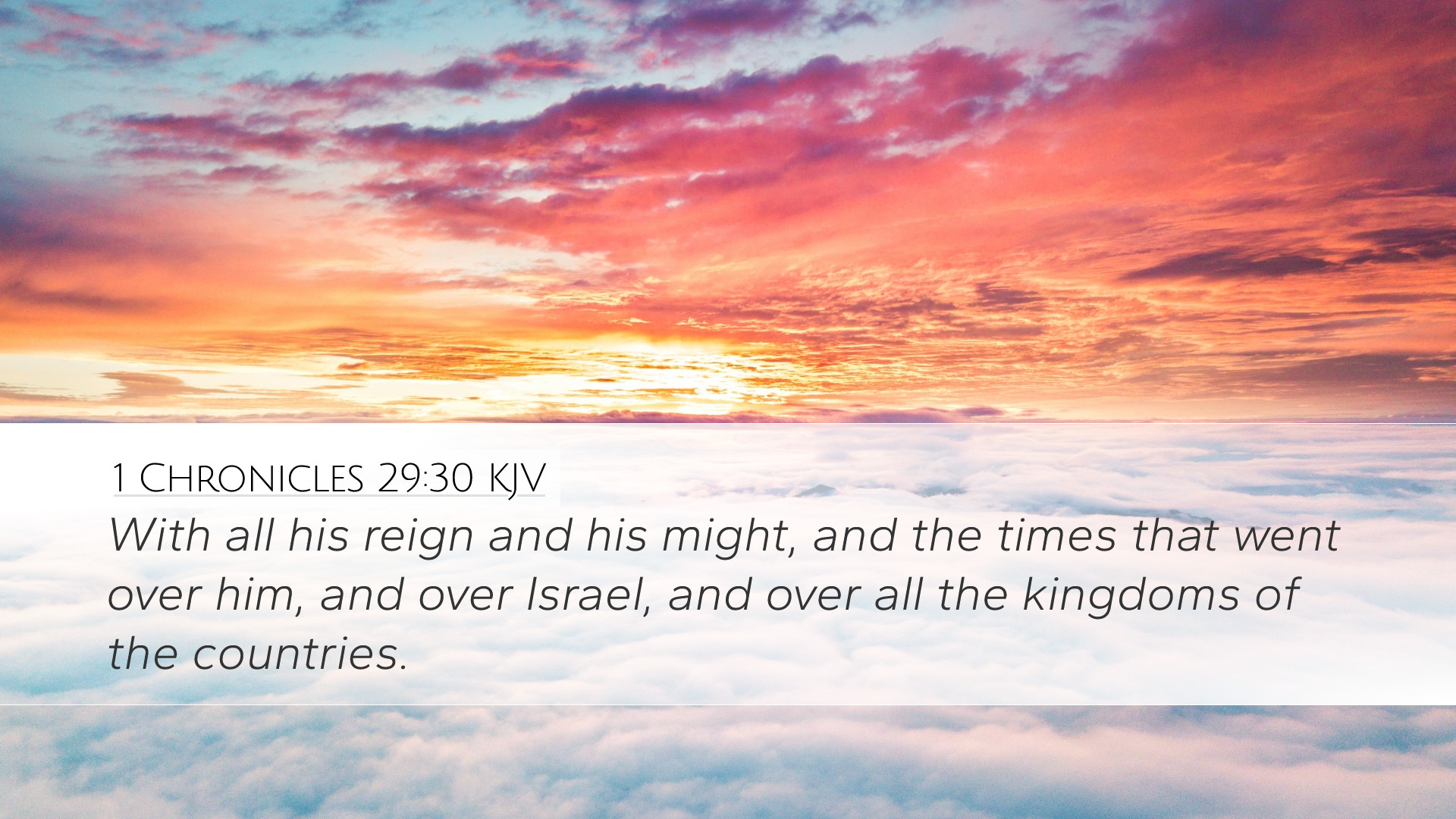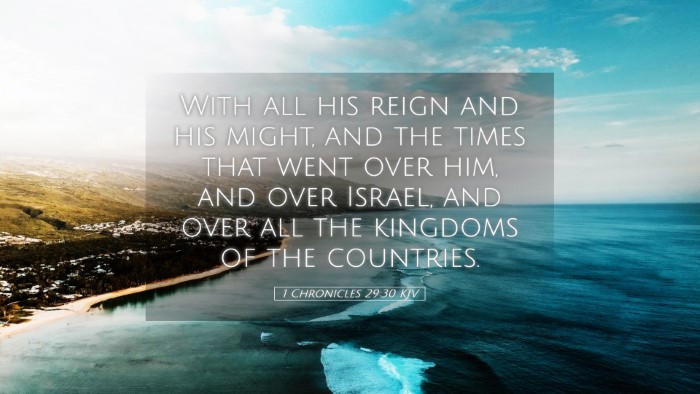Commentary on 1 Chronicles 29:30
Verse: "With all his reign and his might, and the times that went over him, and over Israel, and over all the kingdoms of the countries."
Introduction
The book of Chronicles serves as a rich historical document that not only records the genealogy, reigns, and significant events in Israel’s history but also emphasizes the nature of God’s covenant with His people.
In 1 Chronicles 29:30, we witness a pivotal moment reflecting the reign of King David, his immense responsibilities, and the divine oversight within Israel and the surrounding nations.
Analysis of the Verse
This verse encapsulates the essence of God’s providence and the majesty of David’s reign. It invites readers to reflect on the broader themes of kingship, divine sovereignty, and the historical context of God’s dealings with Israel.
Historical Context
Matthew Henry highlights that this period marks the culmination of David's earthly reign, characterized by his military successes and the gathering of resources for the temple.
The phraseology, “the times that went over him,” suggests a comprehensive review of the seasons of his rule—both trials and triumphs—that shaped the nation of Israel.
The Scope of David's Reign
Albert Barnes emphasizes that David's reign was not limited to the social and political realms; it extended to spiritual governance as well.
Throughout his rule, David served not just as a king but also as a leader who sought God’s heart, which is epitomized in his psalms and devotion to the temple.
God’s Sovereignty
The elements of "might" and "times" signify more than mere chronology; they reflect God’s sovereign rule over all kingdoms.
Adam Clarke points out that the awareness of God's governance instills in both leader and nation a sense of humility and recognition of their dependence upon divine assistance throughout their history.
Theological Implications
The theological implications of this verse are profound. It serves as a reminder for leaders, both ancient and contemporary, about the nature of power and authority under God’s overarching plan.
Leadership Reflection
Matthew Henry notes that leaders should reflect upon their reign with a recognition of its fleeting nature.
The awareness that God reigns supreme over kingdoms encourages humility, accountability, and a focus on fulfilling God’s will rather than seeking personal glory.
Covenantal Faithfulness
Albert Barnes draws attention to the covenantal promises made by God, which remain steadfast regardless of human failing.
The chronicler positions David's reign within the divine narrative of Israel's history, where God’s faithfulness remains unchanged despite the times of trials faced by His people.
Application for Today
This verse not only reflects on the past but also serves as a guiding principle for today’s leaders and congregations.
The thematic elements presented in 1 Chronicles 29:30 challenge us to consider the legacy of leadership amid the awareness of divine authority and purpose.
For Pastors and Theologians
Adam Clarke urges those in pastoral roles to recognize the imperative of leading with a heart aligned to God’s purposes.
The responsibilities should not center solely on administration but on the spiritual well-being of the congregation.
For Students and Scholars
Students and scholars are encouraged to delve deeply into the interplay of history, theology, and practical application found in the Chronicles.
Understanding God’s sovereignty in conjunction with the historical context enriches one’s comprehension of Scripture and the narrative of redemption.
Conclusion
In summary, 1 Chronicles 29:30 extends beyond a mere historical recounting; it invites profound theological reflection and personal application regarding leadership, divine authority, and the continuity of God’s covenant with His people.
By examining the insights provided by Henry, Barnes, and Clarke, we see a framework for understanding how past reigns inform present leadership within a covenantal context.


